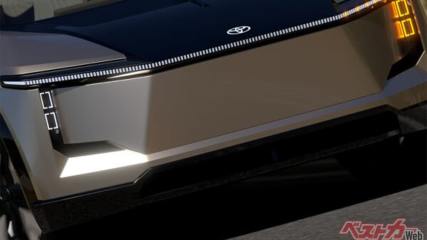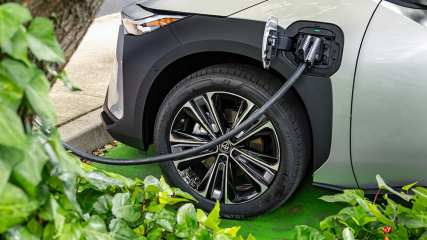'We've got to be part of that phase': More Toyota electric cars are coming as local executive predicts EVs will take off again in Australia. Could it mean an electric HiLux, LandCruiser or Prado soon?
By Chris Thompson · 15 Mar 2025
Talk of slowing electric car demand in the Australian new car market is rife, but an unexpected voice has said there is big growth coming.Between 2022 and 2023, EV sales increased by a meteoric 161.1 per cent (from 33,410 to 87,217), but in 2024 that increase was just 4.6 per cent. So far in 2025 sales are down 37 per cent.Hybrid and plug-in hybrid car were up about 76.0 and 100 per cent in 2024 — but a senior Toyota executive of all people said EVs will take up a much larger share of the market within the next several years.The reason it might be surprising to hear that come from a Toyota Australia exec — namely Vice President of Sales, Marketing and Franchise Operations Sean Hanley — is Toyota currently sells just one electric car in Australia, the bZ4X.In 2024 the brand shifted fewer than 1000 units of the bZ4X, 977 to be specific, compared to the 241,296 total new Toyotas Australians bought for the year.That means that for every (roughly) 241 new Toyotas sold in 2024, just one was a bZ4X. And for every 114 new EVs of any brand, only one was a Toyota.It’s a far cry from the usual one-in-five new cars being a Toyota that the brand has become used to.Toyota’s of course going to have to find a way to increase its share of the EV market if it’s going to maintain market dominance, but just how much of the market will be electric cars in a few years’ time? What about a decade?“I mean, everyone’s got predictions, but my thoughts around this are BEVs will probably cap it around that 30 to 40 per cent of the market at some point,” Hanley said.“I'm not entirely sure that'll be in the near future, but it'll happen.”Despite the EV slowdown, Hanley said he expects to start seeing more clarity in where the market will plateau for different forms of electrification between 2030 and 2035.“The idea that EVs will keep dropping, dropping, dropping south is not going to happen. They're actually going to grow. Yeah, let's be upfront. They're going to grow.“And that's why we’ve got to be part of that phase, because it's going to happen. NVES will play some role in that growth. But in actual fact, car companies and customers will drive that growth.”So why would a senior executive at a brand that’s currently behind the curve when it comes to EVs be so outwardly confident electric cars are will make up more than a quarter of the market within a decade?After all, Toyota is 19.6 per cent of the new car market overall, but just 0.9 per cent of the new electric car market going by 2024’s sales figures.Hanley said Toyota is going to grow its EV portfolio in Australia, along with the rest of the brand’s ‘multi-pathway approach to decarbonisation’.“Despite popular opinion, Toyota is actually saying Toyota EVs will grow over the next four, five years.“Probably thinking around 30 per cent would be where I see it . But give or take, it could go to 40 right?“That would be the top end, but it certainly will be more than 10 per cent you've seen or the less than 10 per cent you see today.”For reference, Hanley’s correct about the EV sales share still not having reached 10 per cent for a calendar year - 2024’s EV sales share was about 7.6 per cent of the total new car market.What exactly Toyota’s EV line-up for Australia will be isn’t clear — but Toyota Europe is about to unleash a slew of new electric models over the next year or so.The brand just revealed its new C-HR+ electric car in Europe but it seems to be destined only for that market for now.It’s one of at least six EV models Toyota plans to have on sale by 2026 (including the bZ4X), but amongst the teaser silhouettes were two cars that seem much more suited to local tastes — the LandCruiser Se and EPU ute concepts.When they were revealed in 2023, Sean Hanley said the chances of Australia getting them would be “extremely good” if they reach production. It seems now that they will.Hanley reiterates that, aside from the GR sub-brand’s performance cars, Toyota aims to implement some form of electrification on “the vast majority of Toyotas”.“Where it gets interesting is when people hear that, they suddenly think ‘oh, so Toyota is going to be all BEV’,” Hanley said.“Well, no, actually, we're not. That's not what we're saying. When we talk about electrification, we talk about all forms, whether it be plug-in hybrid, battery electric, fuel cell electric or hybrid electric.”How long it takes, and whether Toyota is able to replicate its market dominance within the EV space is yet to be seen, but the brand certainly has a way to go if that’s the aim — the rise from less than one per cent of the electric car market to around 20 per cent to match its overall market position is a long one.
.jpg)
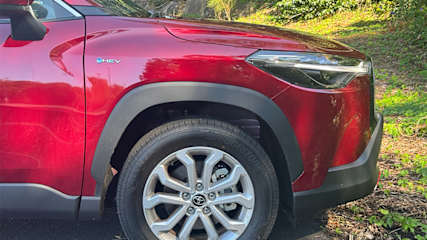
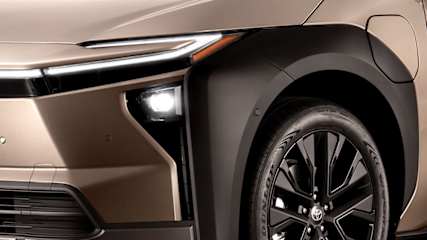

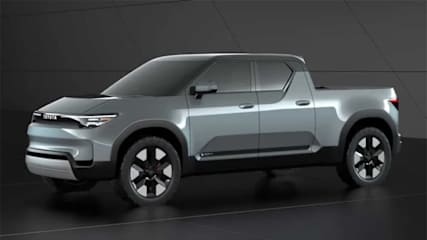
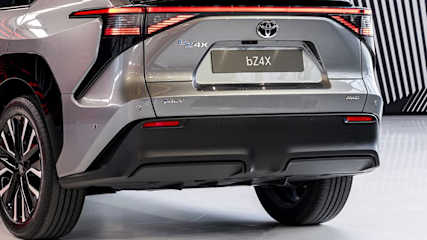
.jpg)
